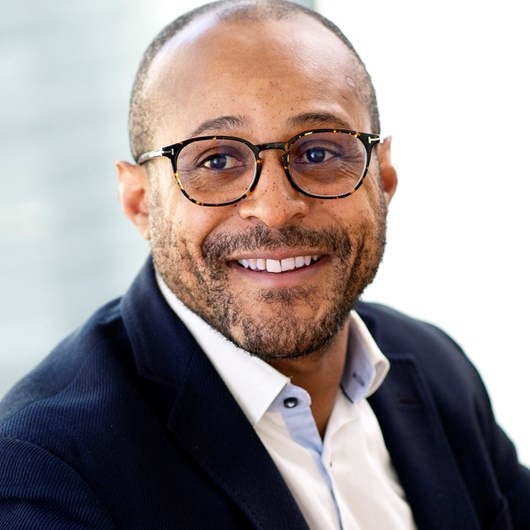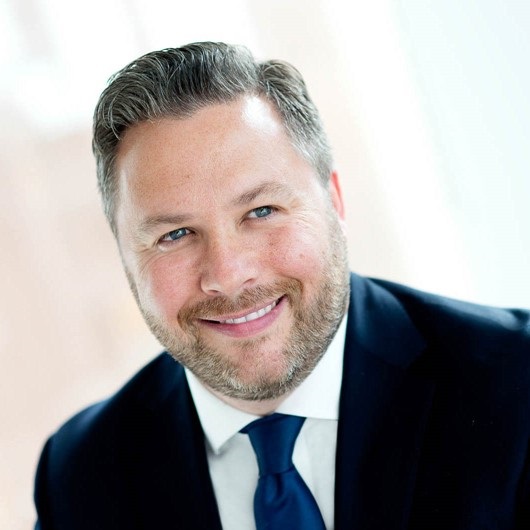As world-leading executive search firm Odgers Berndtson has found, a top-down, bottom-up approach is the best way to successfully incorporate DEI into an organisation.
Top-down is when the CEO and C-suite decide to weave DEI into the fabric of the organisation, and bottom-up involves increasing the talent pool.
“If the talent pool is small, then you have an issue in its own right,” says Michael Drew, Partner and Global Practice Lead, Technology & IT Services Practice. The way to increase it was through initiatives such as the African Gifted Foundation, with which Odgers Berndtson has recently partnered.
This charity provides a one-year STEM programme for gifted young women from across Africa who come from low-income backgrounds. It comprises Cambridge International A-Levels in maths, further maths, physics, robotics, computer programming, and extracurricular activities – all on a full scholarship.
“The STEM sector is sorely underrepresented by diverse female talent at all levels,” says Daniel Glyn-Jones, Principal Consultant in Odgers Berndtson’s Technology & IT Services Practice. “There’s so much rhetoric around inclusion and diversity, and many companies use it as a tagline without doing anything about it. We, as a team, think that if you believe in something and espouse it, you should act on it.
“We see the Foundation as our opportunity not to sit on our hands but to have a real impact, as opposed to joining the talking shop. Where we sit in the world of recruiting and executive search, we have access to some of the most senior people across STEM. Many of them are interested in bringing about positive change, and we’re in the position to help them make that difference as facilitators.”
Drew agrees and adds: “It gives underrepresented groups the opportunities that weren’t there before. And if you create a pathway for them to move into STEM subjects, the talent pool gets bigger. Then, the top-down, bottom-up approach meets in the middle at some point, and you get a better result.”
Tapping into the talent pool
Through its global network of leaders, the firm runs an annual speaker series for the students at the Foundation’s school, the African Science Academy. This aims to inspire the students and demonstrate a successful career path.
Glyn-Jones explains: “We’ve done several ‘lunch and learn’ question and answer sessions where the speakers have brought that to life in terms of their own experiences. Essentially, we’re looking at people from all over the world who have trodden a similar path and now sit in leadership roles, matching them to the students to directly mentor them and share their knowledge.
“Operating in a global market, we have a view across all regions, and we’re seeing tremendous energy and growth in the African continent. There is such an enormous pool of talent there that is effectively untapped. Our firm is very proud of being able to look a little further into the future and, ultimately, look around the corner and see where we can add more to the talent pool our clients wish to reach while helping people to join it.”
Gender balance
In parallel with this initiative, Odgers Berndtson created a programme called Rebus. Launched four years ago, it is helping to bring greater gender balance to the boards of technology companies through networking and speed mentoring.
Drew explains: “We are very well networked with top leaders in the industry, and we bring them into a room to act as mentors to a group of high potential diverse talent. Our job is to be the connectors.”
Individuals then build relationships with the senior executives who guide their careers and help them avoid pitfalls.
“It’s proved to be really effective,” Drew says proudly. “We started with just us and BT; then we got Google involved, a big IT services company called Avanade and the London Business School, so it’s grown and grown.”
Glyn-Jones believes that Odgers Berndtson has focused more on diversity and inclusion than other executive search organisations, which attracted him to join the firm. He says that 10-15 years ago, diversity tended to focus on gender, but the last three or four years have seen a commitment to more ethnic diversity.
“I think it’s a bolder and tougher call for firms, but one of our jobs is to keep them honest,” he reveals. “In days gone by, if clients come to you with a brief wishing to improve upon diversity, it would mean a blanket term, a catch-all that ended in gender diversity. Now we’re at the point where people will perhaps go with the tougher aspects of diversity and mean it.”
Generational commitment
Asked about the challenges of bringing real change, Glyn-Jones argues: “Going back ten years or so, not only did we not have a particularly well-defined idea of what diversity looked like, in all its myriad guises, but also there was less of a sincere boardroom commitment to it. Consequently, it was almost ‘we have a box we must tick, and what can we do while making the least change possible?’ So, the barrier then was apathy whereas the barrier now is talent pool and alignment of a firm’s appetite.”
He adds that searches in STEM leadership talent showed few from ethnic backgrounds were enrolled and proven because they had not had the chance previously – and that it could require a generational commitment to make a real difference.
“It’s our job to remind our clients that there are probably no quick fixes,” Glyn-Jones continues. “It’s about being able to bring in enough exemplars that people can look to at the same time as building bottom-up the talent pool that can step into those roles in years to come and being able to look up and see somebody that gives them a feeling that it’s not a closed door.”
While gender balance in the boardroom had grown to 30%, there was still a long way to go. But increasing evidence of how gender diversity had improved a company’s performance provided more confidence about investing further in DEI.
Diversity festival
Odgers Berndtson is now 52% female, and as part of its commitment to being inclusive, it holds a week-long diversity festival every year. “It includes food and music, and we encourage different faiths to come and present themselves in the office as they might at home,” says Drew. “So, we start to see individuals not just as work colleagues but as individuals on a personal level. That’s brought a wonderful result in the last few years.
“We’ve invited clients equally passionate about DEI to come to the festival and talk about their initiatives. That cross-pollination has been powerful in stimulating new ideas for our firm and the firms we represent.”
There’s also an allies’ group that includes an ally for each of the nine protected characteristics. “There’s always a senior partner as one of the allies,” explains Drew. “But they’re not leading it. It’s important to understand it’s a group-wide initiative – the voices of EAs and researchers, who may be earlier in their careers than a partner and hear more than a partner in that situation. We’re trying to keep a balance across all the characteristics. The allies have individual initiatives that they’re driving, and we try and keep it so that one doesn’t fall behind another.
Starting small
Asked why they were so keen on DEI from a personal point of view, Glyn-Jones responds: “Coming from a less comfortable upbringing in some regards and having to fight a few battles on my way up, it reminds me every day that I have a great deal of invested energy for where we can make it more equal and fairer for people to have the same opportunity to be successful. It’s within our grasp to change, which is exciting.”
Drew agrees and adds: “I’ve got three children, and I’d hate to think my daughters will have fewer opportunities than my son. It’s just not fair. Whatever we can do to make an impact, even if it’s small, it’s better than doing nothing. Ultimately, small initiatives often snowball into something much, much bigger.
“That’s our hope, both with the African Gifted Foundation and Rebus. If every firm is doing something small that grows bigger, you reach the point where the problems that once existed are no longer such big problems.”

Daniel Glyn-Jones, Principal Consultant in Odgers Berndtson’s Technology & IT Services Practice.

Michael Drew, Partner and Global Practice Lead, Technology & IT Services Practice.







